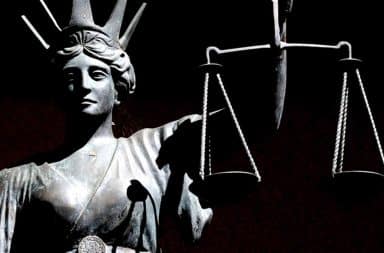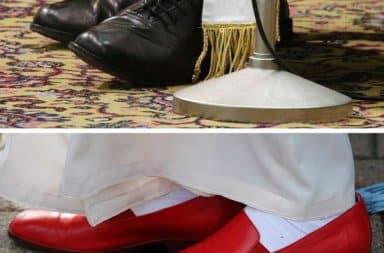Keanu Reeves has a tendency to overact but the American people still love him anyway. We love him as much for his cheesy displays of unintentional comedy as we do for… well, anything else he may have done for the good of cinema. This is not our fault. There's no accounting for taste and all that.
Reeves starred in the movie "Speed" which was pretty good despite Reeves. In the beginning of that movie, Reeves' pal and fellow S.W.A.T. member, played by Jeff Daniels, asks Reeves' character what to do if in a situation where a madman killer is about to get away with a hostage.
"Shoot the hostage," he says. "Take her out of the equation."
Right now, the economy has been taken hostage by our government. Ten or so years ago, they designed laws to make it a requirement for banks to avoid what the government perceived to be discriminatory business practices and make home loans available to all. If mortgage brokerage firms didn't comply, they were accused of redlining (basically a business form of racism or poor-hating) and fined. And so the brokers offered loans to people who didn't qualify because a) they got paid anyway and b) it was the law at the time.
But here's the cool part. The brokerage firms didn't worry because they just sold the loans to banks. And the banks didn't worry because they just sold the loans to Fannie Mae and Freddie Mac, who also didn't care because they had the sole backing of the US Government. And everybody involved got rich. From the CEOs of Fannie and Freddie who embezzled millions of dollars to the bank representatives that sold the loans to Fannie and Freddie, to the mortgage brokers that wrote the loans in the first place. Everyone was raking in the cash and no one had to worry about accountability. The government had made a law and dammit to hell that law had to be followed. The American people deserved to be homeowners after all.
(Side note: what the hell is so great about rising insurance costs, rising taxes, mowing lawns and maintaining a home that the government can take at any time under eminent domain laws? I mean, how is that awesome? Seems stupid to me but whatever).
And so, as the waves of business failure collapse against the shores of political climates, we watch congress blame the businesses for doing what they were told—-and what they never would have done had they taken on any of the risk themselves—while offering only one conclusion to solving our economic woes: print more money and throw it at the problem. This doesn't work. It's never worked. It will continue to never work. But it's all congress knows how to do.
Fortunately for y'all, I haven't had a stiff drink in nine hours or so and I think I have a solution to this bad economy.
Shoot the hostage.
Take the money out of the equation. Get rid of it. The United States Government (via the Federal Reserve) wasn't meant to be the controller of monetary worth. Their job (as far as money is concerned), originally, was simply to hold enough precious metals in reserve so that people didn't actually have to carry said precious metals in their pockets wherever they went. Certain historians know this. We call them paranoids. Certain politicians, like the great Ron Paul, know this. We call them outdated kooks. We do so because we like to think that the way things are is the way they've always been (not true) and as such, is the way they should always be (dangerous thinking).
On the open market, when the value of currency gets weak, people put their money into gold (and silver) to hedge their bets, which is to say that the weakening of currency behaves inversely to the value of gold. In this sense, our currency is still backed by gold, in the same way that a vehicle is backed by its insurance policy. The value of the car and the payout of the policy aren't equal, but when the car suddenly suffers an accident, we turn to the policy to reclaim some of our money.
It is inherent then, that when the government prints a trillion dollars to bail out failed banks and investment firms, they are essentially doing two things that add up to nothing. They are devaluing the currency while increasing the value of gold. The truth here is that, when applied to the entire money supply, the value of the gold does not actually rise or fall. It simply adjusts to the value of currency. No wealth is actually being created, but the faith from the currency becomes the faith in gold. Much as energy cannot yet be created out of nothing, neither can true value. Much like the wrecked car becomes a check, so does the wrecked currency become a bar of gold.
And that is why the government's recent adjustment of financial rules will not actually improve the financial situation. Any solution to economic troubles that results in the printing of more money will simply exacerbate the problem. It's like pumping a bleeding body full of blood. If you don't fix the wound, you are dependent on the acquisition of more blood to keep the patient alive. As you do this, the wound grows larger and more blood is required. The longer you do this, the less likely it is that the patient will live. And, after a long enough time, the patient simply cannot keep the new blood in their system. In a sense, that new blood loses value.
By fixing the wound, or fixing money to a specified precious metal amount, there comes a time when no new blood is needed. The body (in this case, representative of free market supply and demand) can now circulate and regulate its own blood flow and hopefully live a happy life playing tennis or baseball or what have you.
Now, much like people have commodities that they value, so do governments. And one of those commodities is the control of the people within their system. And one of the best ways to keep the masses controlled is to feed them just enough so that they know they're hungry. If a government has an exceedingly rich or exceedingly poor population, they run the risk of mutiny or revolution respectively. So asking the government to solve this problem is not the way to go.
So then, who do we get to solve it?
The answer, my not so physically accessible friends, is in the mirror. We simply must, as a populace and to a person, understand what money is and how it works. If we do not, we run the risk of assuming that everything is as it should be because it's always been that way. And, as things slowly and surely get worse, we will attempt to work with the system that is, instead of encouraging our health and safety, merely barely keeping us alive with the infusion of new blood.
As boring and as self-serving as we find economic history and politics to be (and believe you me, few things in life are less interesting or entertaining), we simply must all become students of the economy so as to properly express our outrage against a system that cares nothing for us.
Consider the world economy as your bank account. Consider economic history as your own personal financial past. And then consider the government's use of your money as identity theft.
The government is stealing from us mainly because they can. And they can steal from us mainly because we let them. And we let them because we're pretty sure they've been stealing from us forever.
And that's the way it's always been so we think that's the way it should be. But that's not really thinking; it's more like practiced ignorance.
In that sense, we are the Keanu Reeves of populations. Our government really enjoys our work because, all the while, they get to chuckle at the way we do it: laughably bad. The unintentional comedy we create out of ignorance, however, is costing us and has been costing us our value.
One more thing before I get off this serious tip:
Many economists will tell you that government intervention within the economy happened as a result of the Great Depression. I am here to tell you that the Federal Reserve pre-dates the Great Depression.
Economic history is like a murder mystery. Only in this murder mystery, we're all the victims.
I'm a total nobody and I approved this message.


